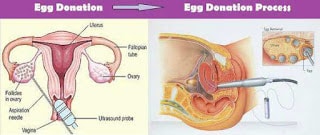In recent years, egg donation has emerged as an excellent solution for individuals and couples struggling with infertility. This generosity has provided hope and enabled countless individuals to fulfill their dreams of starting a family. However, before embarking on the egg donation journey, it is crucial to be well−informed about the process, its implications, and the responsibilities involved.
In this article, we collaborate with AI−driven Egg Donor Bank to delve into the egg donation realm, shedding light on what it entails, how it works, and what potential donors and recipients should know.
Understanding Egg Donation
Egg donation involves the contribution of eggs by a generous donor to help individuals or couples unable to conceive naturally. This selfless act enables intended parents to experience the joys of parenthood and build their families.
Who Can Be an Egg Donor?
Certain criteria must be met to become an egg donor. Typically, donors should be between 18 and 29, in good overall health, and have a regular menstrual cycle. Additionally, candidates should possess good mental health and be free from hereditary or genetic disorders.
The Egg Donation Process
- Application and Screening: Potential donors complete an application form, after which they undergo a rigorous screening process, including medical and psychological evaluations, genetic testing, and a thorough examination of their family and medical history.
- Synchronization: Once accepted, the donor’s menstrual cycle is synchronized with the recipient’s cycle through hormonal medications.
- Ovarian Stimulation: The donor undergoes hormonal injections to stimulate the ovaries and promote the development of multiple mature eggs.
- Monitoring and Retrieval: Regular monitoring through ultrasounds and blood tests ensures the optimal timing for egg retrieval. The eggs are collected under sedation through a minimally invasive transvaginal ultrasound aspiration.
- Fertilization and Embryo Transfer: The collected eggs are fertilized with sperm in a laboratory, and the resulting embryos are transferred into the recipient’s uterus for implantation.
- Post−Donation Care: Afterwards, donors receive appropriate medical care, including follow−up appointments and counseling if required.
The Role of Genetic Testing
During the screening process, potential egg donors undergo comprehensive medical and genetic testing to ensure suitability and minimize potential risks. These tests help identify any underlying medical conditions or genetic disorders that could be passed onto offspring.
By prioritizing the health and well−being of the child, medical and genetic testing plays a critical role in ensuring the long−term success and safety of the egg donation process. Additionally, recipients may opt for additional genetic testing to assess compatibility and reduce the risk of hereditary conditions.
International Egg Donation
In some cases, individuals or couples may consider international egg donation if the availability of donors is limited in their home country or if they seek specific traits or characteristics. Engaging in cross−border egg donation introduces additional legal considerations, as laws and regulations regarding the process may vary significantly between countries. It is imperative for both donors and recipients to thoroughly research and understand the legal framework and requirements in both the home country and the destination country.
Legal and Ethical Considerations
- Legal Agreements: Legal contracts are signed between the donor, recipient, and the respective clinics, outlining rights, responsibilities, and financial arrangements.
- Anonymity and Identity: Laws regarding anonymity and the disclosure of donor information vary across countries and jurisdictions. It is essential for all parties involved to understand the legal framework and the rights of each party.
- Ethical Implications: Egg donation raises ethical questions concerning informed consent, fair compensation, and the potential psychological impact on donors, recipients, and resulting children.
Emotional and Physical Considerations
- Emotional Impact: Egg donation can be an emotionally complex experience for donors and recipients. Donors may have mixed feelings about genetic connections, while recipients may experience various emotions related to donated egg utilization. Counseling and support are invaluable throughout the process.
- Physical Risks: The egg donation process involves the administration of hormones and an invasive medical procedure for egg retrieval. Although rare, potential risks include infection, bleeding, ovarian hyperstimulation syndrome, and complications from anesthesia.
Compensation and Confidentiality
Egg donors often receive financial compensation for their time, effort, and potential inconvenience. The amount varies depending on location, clinic, individual agreement, etc. Confidentiality regarding donor and recipient identities is a fundamental aspect of the process, protecting the privacy and security of all parties.
Costs
Egg donation involves various financial aspects that donors and recipients should consider. Donors need transparency of the financial arrangements, including reimbursement for medical expenses, travel costs, and lost wages (if applicable).
On the other hand, recipients should be aware of the financial obligations associated with the egg donation process, such as clinic fees, medical expenses, and legal agreements. Open communication and transparency regarding financial matters are crucial to ensure a mutually beneficial and fair arrangement for all parties involved.
Conclusion
Egg donation approached with care and proper understanding, can be a transformative experience that brings hope and joy to individuals and couples longing to create a family. Potential donors and recipients can confidently embark on this exciting journey by understanding the process, implications, and responsibilities. Furthermore, donors and recipients should thoroughly research and verify the credibility, reputation, and adherence to regulatory standards of donor banks or clinics they prefer. Choose a company such as Ovogene, which utilizes artificial intelligence technology to streamline the matching process between donors and recipients, enhancing efficiency and improving the chances of successful outcomes.
Egg donation not only creates families but also serves as a testament to the extraordinary compassion and generosity that exists within our society!





